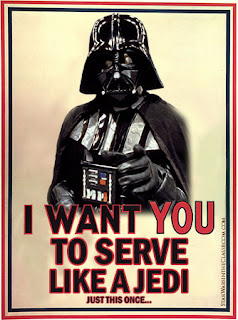 |
| My Discourse Community (not all who I work with, just some) |


For an example of what I think is a discourse community, I am using one that applies to my life. For those of you who have read some of my previous blogs you all know, I work at A Delight Of France Bakery. We not only sale baked goodies but also breakfast and lunch 7 days a week. As well as Friday night dinners only from April to end of September.
From what we discussed in class, a discourse community has 6 major characteristics. I will explain why working at the bakery, we are apart of a discourse community.These 6 definitions are taken directly from Professor Flewelling's powerpoint.
#1: A discourse community has a broadly agreed set of common public goals.
At the bakery, we are constantly talking about common goals and expectations that should be met as a staff. The owner of the bakery, is constantly telling us that customer service is our number one goal over everything else. She is always telling us to interact with customers and ask them about their day. Her famous line that we have all heard time and time again is, "Our food can taste mediocre but if our customer service is amazing, I guarantee people will come back". The bakery really does have great food, but I have to admit, as a team all of us are super great at customer service and take that goal very seriously.
#2: A discourse community has mechanisms of intercommunication among its members.
 The bakery is an old building with older technology. So while working, the main form of communication we use among each other are what is called a "guest check". Workers who are writing the ticket must write legibly or else the cooks will get confused leaving the possibility of an order being messed up.
The bakery is an old building with older technology. So while working, the main form of communication we use among each other are what is called a "guest check". Workers who are writing the ticket must write legibly or else the cooks will get confused leaving the possibility of an order being messed up.#3: A discourse community uses its participatory mechanisms primarily to provide information and feedback.
I am not entirely sure what this means...but as a team, when going up to customers and interacting with them, we are constantly asking how did everything taste? what was your favorite part of the meal? are you coming back again? So as employees are are constantly looking for feedback on how we can do better or praising the people who were complimented. Also, on the bakery website there a place to contact the owners! So if one does want to write a review our owner can be contacted.
#4: A discourse community utilizes and hence posses one or more genres in the communicative furtherance of its aims.
A genre that was just discussed previously is writing those guest tickets. Other genres that we use to further communicate our goals of great customer service is social media! The bakery has its own Instagram account. Follow @adelightoffrance. Our Instagram account is there for the customers! It tells customers if we are having any special promotions or a new pastry on the menu. The account shows that the bakery has more to offer then just breakfast, lunch, and pastry's! The bakery also does wholesale and catering. There is also a bakery website customers can access as well.
#5: In addition to owning genres, a discourse community has acquired some specific lexis.
As discussed in another blog I talked about the kind of language we use to write our guest checks. In order to be fast and efficient, we use abbreviations. Only the workers and the cooks know what we mean. The previous examples I used were Mex. M XX(nay nay) or CR b.fast (bac). Those stand for Mexican Mocha no whip cream and Croissant Breakfast Sandwich with bacon.
#6: A discourse community has a threshold level of members with a suitable degree of relevant content and discourse expertise.
The workers I have in my discourse community all must of had at the very least customer service experience with the ability to adapt and learn quickly to the fast pace food business.
Well that is all I got folks! So I hope my analysis was okay on my discourse community. I hope everyone has a good day. See you all tomorrow.
Xoxo,
Allison Starr








